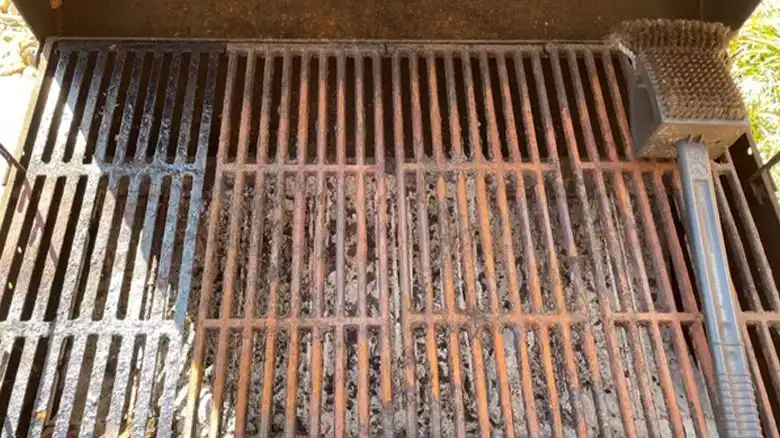Will Rust on a Grill Hurt You? You Need to Know
Iron oxide aka rust is a common problem in poorly maintained grills. When you prefer grilling outside and leave your grill unprotected, it goes through many outer impacts including constant exposure to various elements, fog, and rain. Therefore, eventually, you’ll notice that your grill is getting rusty.
The fact is rust on your grill won’t gonna hurt you directly. But it can be harmful in another way. When you try grilling on a rusty grill, the rust will stick to the food. A little amount of rust may not cause any harm. But if you continuously do grilling on the rusty grate and consume the food, it can possibly cause food poisoning, or at least stomachache.

Is Rust on a Grill Harmful?
If you consider rust on the grill’s outer side, it won’t possibly harm you, unless you cut any of your body parts on its rusty surface. Because if the cut is severe, it can most likely cause infection or fatal diseases like tetanus. But the truth is that the possibility of occurring such an accident is scarce.
NOTE: For your information, rust itself doesn’t cause tetanus. The Clostridium tetani bacteria is to blame for this. These bacteria generally tend to accumulate on rusty surfaces.
On the other hand, if your grill tools (grate, griddle) are rusty then the only concern is the food contamination caused by it. Simply, when you cook your food on a rusty grate or griddle, you’ll feel the rust in your mouth while chewing the food, which is so unappetizing and irritating. And if you don’t hesitate to have such contaminated food in a large amount with continuity, you’re actually risking your health.
Now that you know about the drawbacks of massive rust ingestion, if you’ve been grilling on rusty metal for a long time, you should consult a doctor as soon as possible. You may not have felt or faced any negative symptoms yet, but you don’t know for sure that you’re actually fine. Therefore, contact a gastroenterologist and check your stomach status. If it’s fine then okay. Otherwise, follow the prescription if there’s any infection or presence of harmful bacteria.
NOTE: It’s highly suggested to clean your grill tools and reseason them after every use. Doing so will prevent rusting and any kind of bacteria accumulation, and let you have fresh and healthy food.
Frequently Asked Questions and Answers (FAQs)
Should I replace a rusty grill?
Typically, you can clean rust from your grill surface by using a powerful detergent and scrubbing the rust with an aluminum bristle brush. But if the grill is rusting for a longer time, it most likely gets deep rust. Unfortunately, deep rust is too stubborn to be cleaned entirely. So, if the rust doesn’t go away after proper cleaning, the only option is to replace the grate with a new one.
Does heat remove rust?
Yes, you can remove rust using heat. The procedure is pretty simple. Make use of an acetylene torch (if possible) or any other similar tool and apply high heat on the rusty surface. This way you can successfully remove most of the rust. After that, use a hammer or heavy metal tool to heat the remaining rust. Doing this will take off the rust totally.
What can I do if my grill is rusted?
There’s a shortcut trick to remove rust from your grill. First, mix one part salt and 2 parts vinegar and pour it into a spray bottle. After that, apply the solution to the grill’s rusty surface and leave it overnight. Then use a dry cloth to wipe the grill so that the rust residues get cleaned.
Conclusion
To conclude, rust on your grill can’t hurt you straight. But if you do grilling over and over again on a rusty griddle or grate, the food will definitely be contaminated with iron oxide, and consuming them will be harmful to your health. So, keep your grill and the tools clean after each use, and if the grill is placed outside then make sure it’s protected with a cover.






